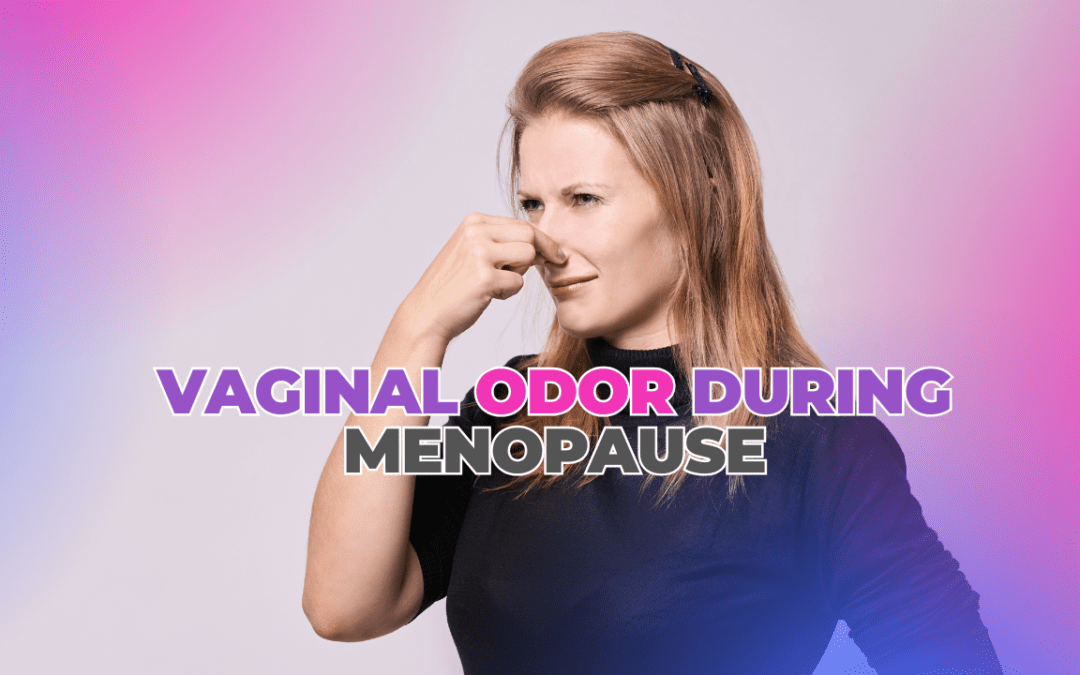Menopause brings many changes to a woman’s body, some expected and others less talked about. One such change is vaginal odor, which can be distressing and affect confidence. Understanding the underlying causes and available treatments can help women manage this issue effectively and maintain their comfort and well-being.
Understanding Vaginal Odor Changes During Menopause
The Role of Estrogen
Estrogen plays a crucial role in maintaining vaginal health. It helps keep the vaginal tissues lubricated, thick, and elastic. During menopause, estrogen levels decline, leading to several changes:
- Thinning of Vaginal Tissues: Reduced estrogen causes the vaginal lining to become thinner and less elastic, a condition known as atrophic vaginitis. This thinning can result in dryness and irritation.
- pH Imbalance: A healthy vagina maintains an acidic environment, primarily due to the presence of Lactobacillus bacteria. These bacteria produce lactic acid, keeping the vaginal pH between 3.8 and 4.5. Lower estrogen levels can disrupt this balance, leading to a more alkaline pH, which may promote the growth of odor-causing bacteria.
Microbiome Alterations
The vaginal microbiome consists of beneficial bacteria that protect against infections. Menopause-induced hormonal changes can disrupt this delicate balance:
- Decrease in Lactobacilli: These beneficial bacteria thrive in an estrogen-rich environment. Their decline can lead to an overgrowth of harmful microorganisms, resulting in unusual odors.
- Increased Susceptibility to Infections: An imbalanced microbiome can make the vagina more prone to infections like bacterial vaginosis (BV), which is characterized by a fishy odor.
Common Causes of Vaginal Odor During Menopause
Bacterial Vaginosis (BV)
BV is a common vaginal infection resulting from an overgrowth of anaerobic bacteria, replacing the normal Lactobacillus species. Symptoms include:
- Thin, grayish-white discharge
- Strong, fishy odor
- Vaginal itching or burning
BV is more prevalent during menopause due to pH changes and a decrease in protective bacteria.
Atrophic Vaginitis
Also known as vaginal atrophy, this condition arises from thinning and inflammation of the vaginal walls due to decreased estrogen. Symptoms include:
- Vaginal dryness
- Burning or itching
- Unpleasant odor
- Pain during intercourse
The reduced lubrication and changes in the vaginal environment can lead to odor issues.
Poor Hygiene and Product Use
Menopausal women might experience changes in sweating patterns or urinary incontinence, contributing to odor. Additionally, using scented soaps, douches, or feminine sprays can disrupt the natural vaginal flora, leading to imbalances and odors.
Other Infections
While less common, other infections like trichomoniasis or yeast infections can cause changes in vaginal odor. These infections may present with:
- Unusual discharge (yellow-green for trichomoniasis, thick white for yeast infections)
- Itching or irritation
- Discomfort during urination or intercourse
Effective Treatments and Management Strategies
Medical Treatments
Topical Estrogen Therapy
Applying estrogen directly to the vaginal area can help restore the thickness and elasticity of vaginal tissues, rebalance pH levels, and alleviate symptoms like dryness and odor. Forms include creams, tablets, or rings.
Antibiotic Therapy
For infections like BV, healthcare providers may prescribe antibiotics to eliminate harmful bacteria and restore balance.
Hormone Replacement Therapy (HRT)
Systemic HRT can address broader menopausal symptoms, including vaginal changes. However, it’s essential to discuss potential risks and benefits with a healthcare provider.
Lifestyle and Home Remedies
- Maintain Proper Hygiene: Clean the external genital area with warm water and mild, unscented soap. Avoid douching, as it can disrupt the natural bacterial balance and lead to infections.
- Use Moisturizers and Lubricants: Over-the-counter vaginal moisturizers can help maintain moisture, while water-based lubricants can reduce discomfort during intercourse.
- Wear Breathable Fabrics: Opt for cotton underwear and avoid tight-fitting clothes to reduce moisture buildup, which can promote bacterial growth.
- Stay Hydrated and Maintain a Balanced Diet: Drinking adequate water and consuming a diet rich in probiotics (like yogurt) can support overall vaginal health.
When to Seek Medical Attention
While some changes in vaginal odor during menopause are normal, certain signs warrant a consultation with a healthcare provider:
- Persistent or Strong Odor: Especially if accompanied by unusual discharge or discomfort.
- Symptoms of Infection: Such as itching, burning, swelling, or unusual discharge color.
- Bleeding: Any postmenopausal bleeding should be evaluated promptly.
How Amazing Meds Can Help
At Amazing Meds, we specialize in bioidentical hormone replacement therapy (BHRT) tailored to individual needs. Our comprehensive approach ensures that you receive personalized care to address symptoms like vaginal dryness, discomfort, and odor changes. Our process includes:
- Consultation & Evaluation: Understanding your health history and symptoms.
- Lab Work & Physical Assessment: Conducting necessary evaluations to tailor your treatment.
- Results Review: Discussing findings and recommending appropriate therapies.
- Care Delivered to Your Door: Providing prescribed treatments conveniently to your home.
For more information or to schedule a consultation, visit https://amazing-meds.com/.
Disclaimer: This article is for informational purposes only and does not replace professional medical advice.

